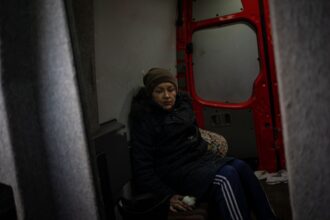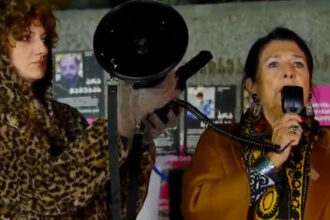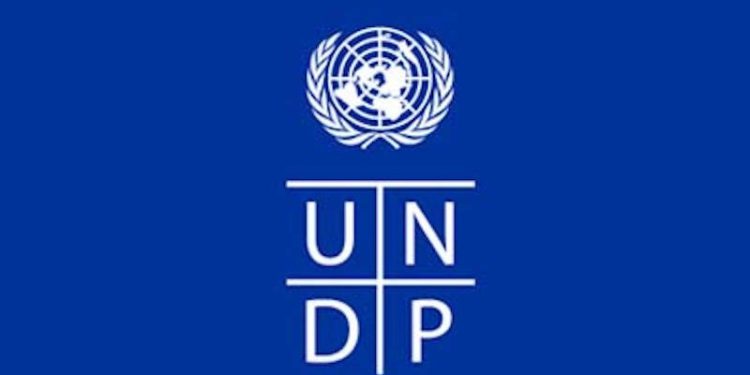The United Nations Development Programme (UNDP), in order to support the socio-economic recovery following the COVID-19 Pandemic, extended its assistance towards the vulnerable communities who have had their livelihoods threatened by pandemic-induced shocks. This support included internally-displaced persons (IDPs), and vulnerable communities living in close proximity to conflict divides. UNDP implemented an initiative worth US$600,000. It focused on helping women, youth, and the elderly who were internally displaced.
The results of the support were presented at an event on 13 December, organised by UNDP and the Agency for Internally Displaced Persons, Ecomigrants and Livelihood. The presentation was attended by local civil society organizations that work on IDP issues as well as state agencies and private firms.
Specific projects were carried out in collaboration with state agencies and civil society organisations – CARE Caucasus (Atinati), Charity Humanitarian Centre “Abkhazeti” (CHCA), IDP Women’s Association “Consent”, Education Development and Employment Center(EDEC) and Georgian Innovation and Technology Agency(GITA), focusing on communities living in IDP collective centers and the areas adjacent the conflict divides.
In partnership with the Public Defender’s Office, an assessment of pandemic effects on women and girls affected by conflict was also conducted. The research will provide recommendations that will help inform the policy response to this pandemic. UNDP also focused its support on expanding access to hygienic practices, sanitation, and learning and counseling for IDP women, and on promoting youth involvement in the development of COVID-19.
“People affected by conflict in Georgia are among the most vulnerable.” COVID has affected them particularly hard. We focused on practical assistance – eLearning tools for children and fixing essential water and sanitation systems. We provided start-up and expansion funding to local women entrepreneurs. “I’m happy to see that this work is being carried out in close collaboration with the Government and local authorities,” said UNDP head Nick Beresford.
In order to better meet the needs of internal displaced persons, UNDP signed earlier this year a Memorandum of Understanding (MOU) with the Agency of Internally Displaced Persons, Ecomigrants and Livelihood. UNDP provided technical expertise and equipment in support of the Agency’s services as part of this collaboration.
“Georgian Government actively cooperates with UNDP, and partners, in designing sustainable models that ensure at-risk communities get vital services during and after the pandemic.” The initiatives discussed today have contributed significantly to alleviating immediate shocks caused the pandemic and supporting the long-term improvements of livelihoods for the vulnerable groups in Georgia,” Besarion Simiishvili, Director, Internally Displaced Persons, Ecomigrants and Livelihood Agency.
UNDP supported the opening of 10 eLearning community centres in Shida Kartli and Samegrelo Zemo Svaneti. These centres provided women and girls who were internally displaced with the opportunity to work and learn during lockdowns. The assistance also covered 35 quick fix infrastructure projects that improved water and sanitation facilities in IDP collective centers.
UNDP provided assistance to 20 women affected by conflict in order to start or expand businesses. UNDP provided entrepreneurship and marketing courses, paid internships with local businesses and trained 45 youths in communication, human right and conflict resolution to help women and young people from vulnerable communities find employment. The assistance helped increase the resilience of households affected by conflict and contributed to women and youth‘s economic empowerment.
The assistance is based on funds made available to countries by UNDP following the COVID-19 outbreak. It will help them address emergency needs, improve crisis management, and promote sustainable recovery after the socio-economic impacts of border closures and lockdowns.
Read More @ georgiatoday.ge




